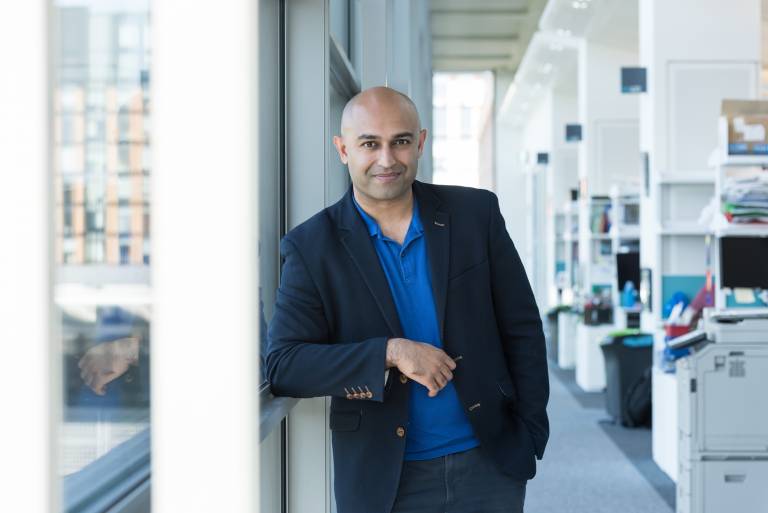Rickie Patani at UCL Queen Square Institute of Neurology secures major MRC award for ALS research
16 November 2018
We are delighted to announce that Dr Rickie Patani, UCL Queen Square Institute of Neurology & the Francis Crick Institute, has been awarded the only MRC Senior Clinical Fellowship in 2018. Rickie received a maximum score of 10, which is a remarkable achievement.

Dr Patani's MRC Senior Clinical Fellowship is on Capturing the spatiotemporal diversity of cellular and molecular mechanisms in ALS
“I am truly honoured to be awarded the only MRC Senior Clinical Fellowship this year. I am immensely grateful to fantastic collaborators and colleagues across UCL Queen Square Institute of Neurology and The Francis Crick Institute. I’m also very grateful of course to the MRC for their confidence in our research vision". Dr Rickie Patani
“I am absolutely delighted to congratulate Rickie on his successful MRC Senior Fellowship award to lead his group at the Queen Square Institute of Neurology. This is a very prestigious MRC award and is a major achievement. His ground breaking research into the mechanisms of the devastating disease ALS will hopefully identify new targets for translational to experimental medicine at Queen Square and ultimately deliver effective therapies for patients” Professor Michael Hanna, Director of the UCL Queen Square Institute of Neurology
Dr Patani’s lab uses human induced pluripotent stem cells (iPSCs) to generate neuronal and glial cells from patients with ALS and healthy volunteers, to work out the earliest molecular events of disease pathology. iPSCs are adult cells that have been reverted back into stem cells capable of becoming any cell type. Under the right conditions, they can be coaxed into becoming the cell type that researchers want to study such as nerve cells or blood cells.
His work emphasises the importance of interdisciplinary and team science, integrating stem cell biology, developmental biology, neuropathology, bioinformatics and RNA biology.
The lab specifically focuses on two main areas: how abnormalities in RNA transcript structure lead to aberrant RNA-protein interactions to cause ALS and how glial cells of the brain – known as astrocytes – conspire with motor neurons to cause ALS.
By validating primary findings from ALS patient-specific iPSCs in mouse models and human post-mortem tissue from sporadic ALS cases, Dr Patani’s team aim to translate their discovery science into new therapeutic strategies, which are desperately needed in ALS.
 Close
Close

